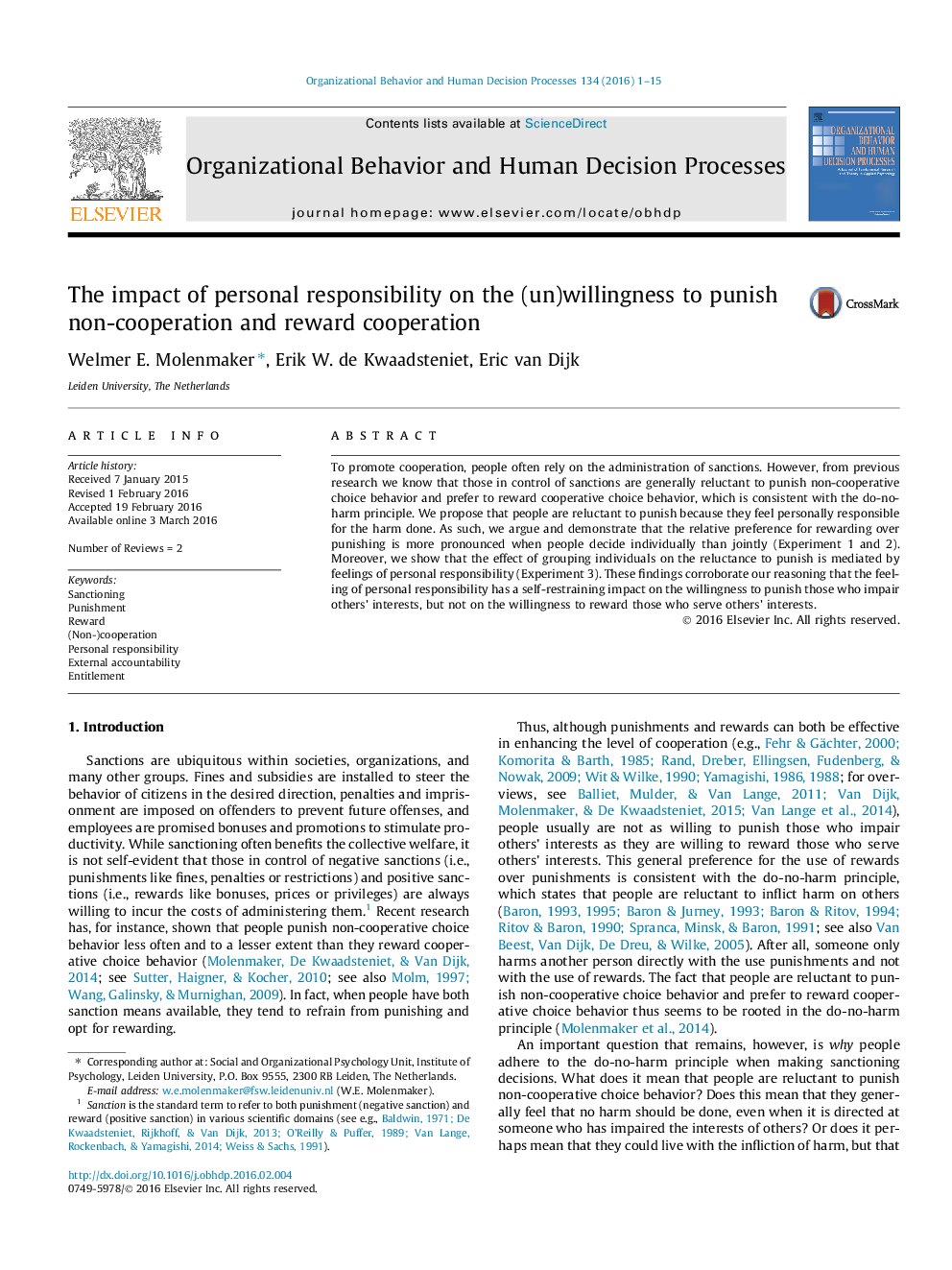| Article ID | Journal | Published Year | Pages | File Type |
|---|---|---|---|---|
| 888482 | Organizational Behavior and Human Decision Processes | 2016 | 15 Pages |
•This paper focuses on the general preference for rewarding cooperation over punishing non-cooperation.•We propose that responsibility for the harm done has a self-restraining impact on the willingness to punish.•Individuals’ reluctance to punish non-cooperation was stronger than for groups.•The willingness to reward cooperation did not differ between individuals and groups.•The effect of grouping individuals was mediated by feelings of personal responsibility.
To promote cooperation, people often rely on the administration of sanctions. However, from previous research we know that those in control of sanctions are generally reluctant to punish non-cooperative choice behavior and prefer to reward cooperative choice behavior, which is consistent with the do-no-harm principle. We propose that people are reluctant to punish because they feel personally responsible for the harm done. As such, we argue and demonstrate that the relative preference for rewarding over punishing is more pronounced when people decide individually than jointly (Experiment 1 and 2). Moreover, we show that the effect of grouping individuals on the reluctance to punish is mediated by feelings of personal responsibility (Experiment 3). These findings corroborate our reasoning that the feeling of personal responsibility has a self-restraining impact on the willingness to punish those who impair others’ interests, but not on the willingness to reward those who serve others’ interests.
